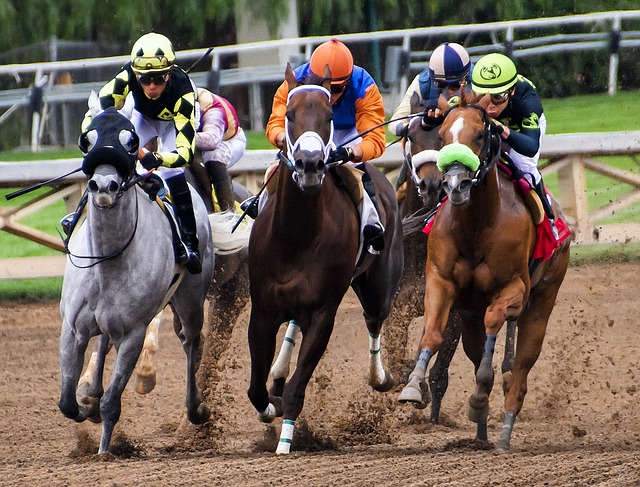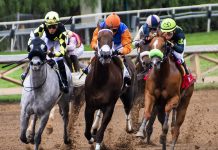
In the world of horse racing, picking a winning horse isn’t just about luck. It’s an art backed by data and knowledge, where keen observation and understanding come into play. Whether betting for fun or as a serious punter, knowing how to pick winners consistently can make your experience more profitable and enjoyable.
Horse form, track conditions, and even the jockey’s skill contribute significantly to determining whether a horse will cross the finish line first. Understanding these elements is crucial in making educated bets in this exciting sport.
However, it can be manageable. By focusing on some key pointers, even novices can start to understand what makes one horse more likely to win than another. This article aims to demystify picking winning horses with simple yet effective tips that anyone can apply.
Research Professional Picks
Diving into the world of horse racing, you must do your homework. One key aspect involves researching professional picks. These are selections made by horse racing experts, based on their extensive knowledge and experience in the field.
There’s no denying that professionals often have a keen eye for detail. They’re able to spot potential winners that an average bettor might overlook. That’s why following their tips could give you an edge over other bettors.
To start with, make sure you’re following credible sources. Countless experts out there claim to be the best, but not all of them can deliver results consistently. Look for those with a proven track record of success in picking winners.
Also, remember that even professionals aren’t infallible. Their picks will only sometimes win – nobody can predict outcomes with 100% accuracy in horse racing due to its unpredictable nature. So while their advice can be useful, it shouldn’t be your only source of information.
Here are some tips when considering professional picks:
* Always cross-check any tips received against other reliable sources.
* Don’t blindly follow anyone’s advice; use it to inform your decision-making process.
* Keep track of the performance of various tipsters over time.
* Be wary of anyone promising guaranteed wins or unrealistic profits – these are typically signs of scams.
Check the Jockey Stats
When picking a winning horse, one can’t ignore the importance of jockey stats. It’s not just about the horse’s performance and fitness; often, the jockey makes all the difference in a race.
A seasoned jockey can read a race better, understand their horse’s strengths and weaknesses, and know precisely when to push for that extra speed. So if you’re looking for pointers on how to pick winning horses, paying attention to jockey statistics is essential.
Some useful metrics worth considering are:
* Win percentages: Higher numbers indicate consistent performers.
* In-The-Money (ITM) percentages: This shows how often a joker finishes in top positions.
* Average Earnings per Start (AEPS): High AEPS figures suggest that a joker frequently rides high-quality horses.
Remember though – while these factors provide valuable insight into predicting winning horses, there isn’t any foolproof method or guarantee of success. Horse racing involves numerous uncontrollable factors like weather conditions and individual horse health on race day.
Research Horse’s Form
Delving into the horse’s form proves essential when picking potential winners. It’s a method employed by seasoned bettors and should be considered a staple in your betting strategy.
The term’ horse form’ refers to a horse’s previous performances in races. Studying it involves careful analysis of its past races, observing trends, and noting any significant improvements or declines.
A key point to consider is consistency. A horse that consistently performs well will likely continue doing so, barring unforeseen circumstances such as injuries or drastic changes in conditions. On the flip side, if a horse generally underperforms but has recently shown improvement, don’t hastily label it as an up-and-comer.
You’ll also want to examine how a particular horse fares in similar race conditions. Consider factors like track surface (dirt, turf), distance (sprint vs endurance), and weather conditions (wet vs dry). For instance:
* If it’s rained heavily before race day and your chosen steed excels on wet tracks – that could be seen as an advantage.
* Conversely, if you’ve got an endurance horse running a short sprint – odds are against it performing well.
Remember not to rely solely on recent performance; it’s just one piece of the puzzle. Studying form guides and understanding individual horses’ strengths and weaknesses can help you make more informed decisions about which horses may hold promise as winning picks.
Research the Going
Diving into the fourth part of our guide, it’s crucial to consider an often overlooked aspect: researching the going. The term “going” in horse racing refers to the condition of the racecourse surface on race day. It plays a significant role in determining a horse’s performance.
Different horses have distinct preferences for track conditions. While some excel on soft, muddy grounds, others might show their best form on hard, dry tracks. So understanding what type of surface suits your chosen horse is key to picking winners.
By considering these factors and doing diligent research, you’re more likely to pick winning horses consistently. Remember that while there is only sometimes a sure bet in horse racing, informed decisions increase your chances substantially.
So next time, before placing your bets, don’t forget to research the going—it could be your secret weapon for success!




![Kentucky Derby Point Standings [2026]](https://ultimatecapper.com/wp-content/uploads/2017/09/churchill-downs1-2.jpg)